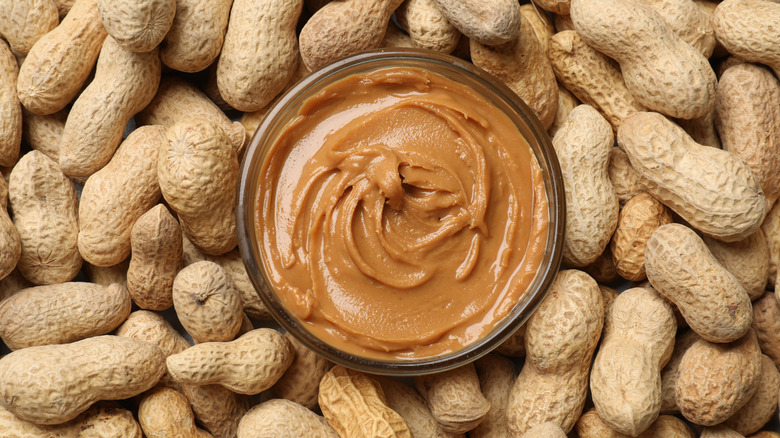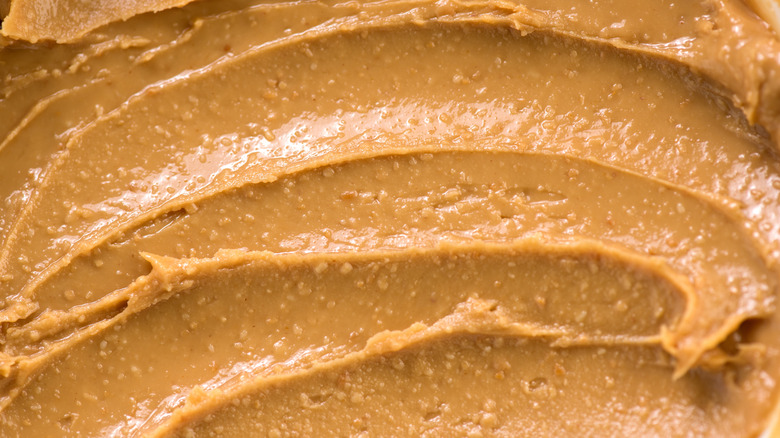The Ingredient List Red Flag To Look For On A Jar Of Peanut Butter
We may receive a commission on purchases made from links.
It's no question that people love peanut butter. From the iconic peanut butter and jelly sandwich, which even Ina Garten has a recipe for, to having a starring role as the sauce and dressing in many recipes, peanut butter is beloved worldwide. Indeed, India and the United States lead in the exportation of peanuts, and their popularity is such that nearly every American is guaranteed to possess a jar of peanut butter in their pantry. Given this, some brands may claim that what they're selling is peanut butter, but have added "red flag" ingredients of which to be aware. In simplest terms, brands that include more than two ingredients are typically a no-go for anyone trying to avoid additives and preservatives.
Peanut butter should consist of no more than two ingredients, with peanuts as the obvious and main ingredient. Commonly, some salt may be added to elevate the taste. From here, additional ingredients are introduced for a multitude of reasons. Many commercial brands will incorporate additional salt and sugar for flavoring, as well as stabilizers like sodium benzoate, as well as hydrogenized vegetable and palm oil to extend shelf life and maintain peanut butter's expected creaminess. While these additives are great at their jobs, they'll also add more saturated fats, which, alongside those with high amounts of sugar and salt, can bring a lot of unhealthy aspects to the table.
How you can find the best peanut butter at the stores and make your own
Thankfully, it's easy enough for anyone looking for the best peanut butter brands with the least additives. The best advice that can be given is to avoid the mistake of not reading labels. Seek out "natural" peanut butter as these will be made with a focus on peanuts, and possibly salt. Look for brands like Crazy Richard's 100% Peanuts! Peanut Butter, which is the only brand to be glyphosate free — a common weed killer used in peanut production that was found in other brands. Powdered peanut butter is a rising star in the grocery aisles as it's lower in calories, free of oils, and contains minimal sugars and salt.
Of course, there's always the homemade route. Making peanut butter is simple, as all it takes is a way to process your preferred nut. The best part of making it at home is that you can keep it as simple as you'd like. Chefs like Alton Brown opt for Spanish peanuts, a pinch or two of salt, and honey for flavor. From here, you can adjust the consistency by adding the corresponding oil for that nice, creamy texture or water to thicken peanut butter. Additionally, spices and other flavorings can help enhance homemade recipes by stirring in cocoa powder or even ginger.

